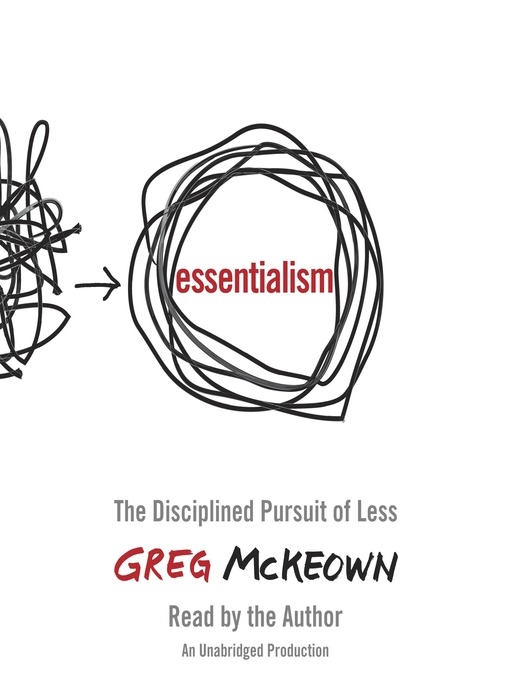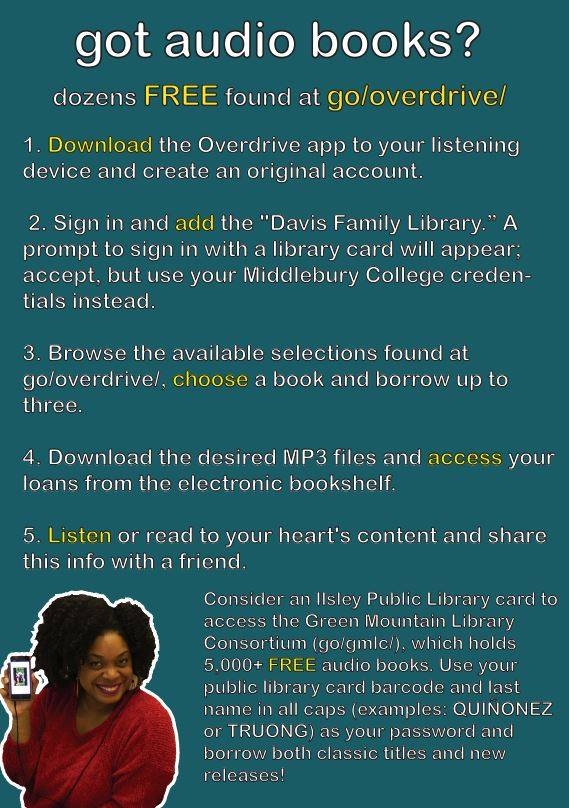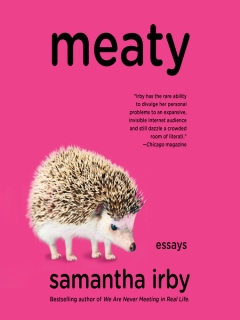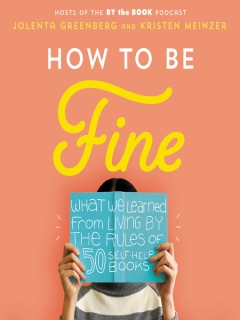It’s been over a month since most students have left Middlebury. A broad array of normal campus functions have shut down and classes have gone fully online. These transitions, no doubt, are massive and can certainly make us feel justifiably destabilized. So for the second entry in our Words for Wellness series (click here for the first), we offer you a title that challenges us to rethink what is most important, the audiobook Essentialism: The Disciplined Pursuit of Less by Greg McKeown. McKeown, a Stanford graduate and Englishman offers some advice that may fly in the face of what we at Middlebury have practiced for years and decades: he suggests that we do less, that we decline more opportunities, more regularly, and that we exercise selectivity with uncanny abandon. I know, I know: it’s startling. We are a collective of innovators, optimists and advocates for change. The notion that we should reduce our efforts seems anathema to our very cores. But the advice is worthy of consideration, even for motivated, perpetual high achievers like us— perhaps especially for us. The author is not merely suggesting that we do less, but that we free ourselves so that we can do more of the right things.
Before I continue, I should state that McKeown is a married college graduate in his 40s with multiple children. So, the demands on his time are not going to be the same as those of some of us within the Middlebury collective who are younger, single and childfree undergraduates. He is not at a stage in his life in which he is attempting to build a resume, demonstrate a history/pattern of success/reliability and/or show promise in the face of a competitive job market. Regardless of all this, the lens he recommends of picking the right opportunities by being slow to say yes to the flurry of opportunities we’re presented with and quick to say no to the majority of them is compelling. Actually, he’s saying something even more severe than that: if a new opportunity doesn’t conjure a clear, enthusiastic and resounding “yes” in you, his advice is to make your reply a “no.” His whole ethos is about optimization, making the highest point of contribution and, perhaps my favorite, “deliberate subtraction”: re-evaluating every outstanding commitment in your life regularly to determine whether the value it once contributed remains. If it doesn’t, he says, excise.
For someone like me, who, even in the era of shelter-in-place and quarantine has a to-do list that just won’t quit, I appreciated this work. It has convinced me to release myself from some voluntary obligations that were not yielding benefits commensurate with their required effort. If you are finding it difficult to meet all of your life’s demands, this title could be a good resource of instruction to help you to establish and externalize criteria for when you should opt in to projects and opportunities. Another work that speaks to a similar theme is Marie Kondo’s The Life Changing Magic of Tidying Up*, which encourages readers to only preserve material items that spark joy. McKeown’s addresses engagement of activity; Kondo’s treats the themes of possessions and space. For more, tune back in in two weeks for more from Words for Wellness. And for the first entry in this series, click here.
*We carry this title in the print collection, but it must be requested for purchase as an e-book by logging in at go.middlebury.edu/requests.
Follow the transcribed instructions below to access audiobooks in our collection.
- Download the Overdrive app to your listening device and create an original account.
- Sign in and add the “Davis Family Library.” A prompt to sign in with a library card will appear; accept, but use your Middlebury College credentials instead.
- Browse the available selections found at go.middlebury.edu/overdrive, choose a book and borrow up to three.
- Download the desired MP3 files and access your loans from your electronic bookshelf.
- Listen or read to your heart’s content and share this info with a friend.
When the time comes, consider getting a library card from the Ilsley Public Library in Middlebury to access the Green Mountain Library Consortium (go.middlebury.edu/gmlc/), which holds 5,000+ FREE titles. Use your library card barcode and your last name in all caps (examples: QUIÑONEZ or TRUONG) as your password and borrow both classic titles and new releases!





